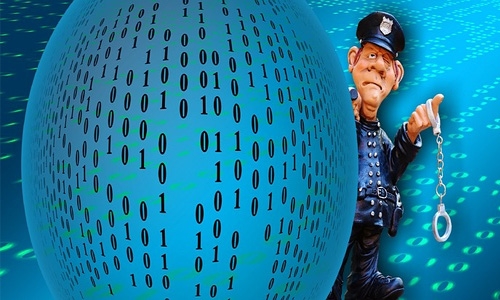Is cyber security just a myth?
Manama : In today’s world of Facebook, Instagram, Twitter and Snapchat trying to not over-share our personal information is almost impossible. It’s incredibly difficult for people to differentiate between what is safe to share and what should be kept private. Even basic information such as your full name and gender could prove to be dangerous these days.
We all know about the basic precautions against online dangers such as not responding to suspicious emails, not adding unknown people in social media and to never share sensitive information with anyone.
One of the newest dangers that have arrived on the social media arena is geo-tagging. Geo-tagging is most commonly used for photographs and can help people get a lot of specific information about where the picture was taken or the exact location of a friend who logged on to a service.
What may appear as an innocent tool, can potentially lead to allowing anyone to realise where you are at all times. It leaves your home prone to a break-in, your privacy invaded and can even lead to being stalked by someone. After all you have made it public knowledge of where you are at all times allowing the cyber criminals to study your daily patterns.
Some of the measures we can take to keep ourselves safe are by following a few precautions such as the following:
Turn the geo-tagging features off – This is obviously the first option that comes to mind when you think about the threats online.
Download disabling software – With all the information you send and receive it is hard to keep track of everything. This can be countered by downloading software that can disable or remove the geo-tagging features in your phones or computers.
Be aware and educate yourself and your friends – See to it that you are aware which programmes use the geo-tag and about the new ones that come up in the market. Be aware of the threats of the cyber world and ensure your loved ones are aware of it as well.
Watch what you post – It’s especially important to be cautious over the content you post. Remember that whatever you post it will stay in the Internet forever so it wouldn’t hurt to think twice before you post anything online.
On this topic DT News asked the opinion of people on the threats the online community pose and how dangerous they viewed it to be. Here are some of their replies on how active they are on social media and whether they considered it dangerous to share their information online.
“I’m fairly active on social media and try to keep my personal information as private as possible. You hear numerous incidents about bank frauds and identity thefts. I’m aware of the risks involved and try to limit what I share online but the boundary between what is safe and what is not is unclear these days,” said Jeeth Gregory, Sales Executive.
Meanwhile, Pranav Radhakrishnan, a student at UOB, said, “I don’t share much online. In fact, I think I share a little bit too less. Sharing information on the Internet can be a dangerous thing if not done within limits. Strangers could know things they shouldn’t if limits are not set. Personal info could be used against you leading to some very unfortunate incidents.”
Sharing her view, Shobha Shaji, Exe. Secretary to GMO, said, “It is of my opinion that the information we share online must be fully thought out. It is always safer not to reveal too much of our personal information online. Especially, information that leads to easy identification of where we are and what we are doing should be avoided.”
Another student, Avinash Shankar Bharadwaj, said, “Well, irrespective of online security, more than continuing to build apps and software to secure Internet experience I’d say we need to reach out to the masses first. Give a little education, however, tedious it turns out to be, about what to be aware of online.”
DT News also consulted some expert opinion about the threats that arise in the cyber world and how it can be avoided and here is what he had to say about the situation:
“Social networking sites are Internet-based services that allow people to communicate and share personal information with society or with groups. Once you have submitted your details on such platforms it is no longer private. When you post frequently it leaves you even more vulnerable to hackers even if you use very high security. Your information may even leak from your friends inadvertently. Personal Information shared can be used to attack you and even your associates and that makes it dangerous,” said Nadeem Ahmed, Technical Support Engineer at Amadeus Bahrain.
To an extent, people have become aware of the dangers online and have taken their Internet security seriously. While it is Neanderthal to ask the readers to renounce all forms of online sharing, taking thorough precautions cannot bring any harm. Each time before you post anything, think if it is something that can be used against you later on. To learn more about the threats online, look up on http://nobullying.com.
Personal security is a top priority for everyone, so it is time we start dealing with this issue accordingly. The more people are aware of the risks involved and take measures to protect themselves, the less likely they are to become a victim themselves.
Related Posts

